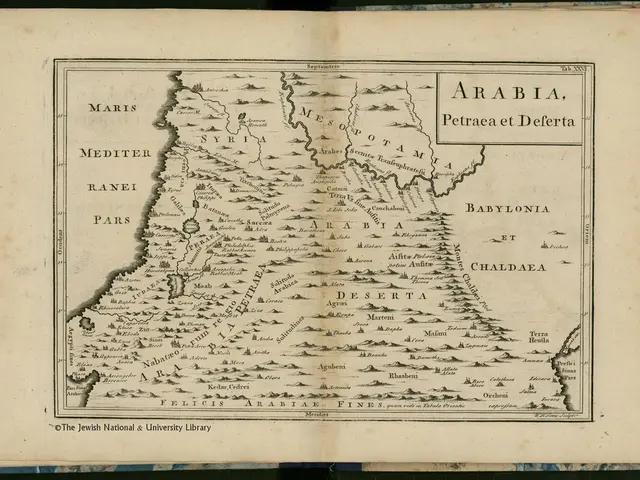Diving Deeper into the Ocean Debate: 30 Nations Urge a Timeout on Deep-Sea Mining at the UN Conference
Thirty-three states advocate for a "cautious halt" in deep-sea mining activities.
In a united stand, 30 nations from Europe, America, and the Pacific have cried out for "at least a precautionary pause" in deep-sea mining at the UN Ocean Conference. France spearheaded this call, arguing that the deep seabed - a reservoir of untouched biodiversity - needs to be protected. Germany is amongst the 33 nations backing this initiative.
The mass appeal was issued in Nice on the opening day of the UN Ocean Conference. At its heart lies the assertion that minerals found on the seabed beyond national waters are the shared inheritance of mankind. The signatories warn that any mining in areas beyond national jurisdiction would flout international law.
The US, under President Donald Trump, endorsed mining for metals like nickel and cobalt back in April. The nation's economy seeks to capitalize on billions of tons of valuable minerals in international waters. This ambitious venture, however, is under heated scrutiny due to the deep sea's rich, unique ecosystems and its role in CO2 storage and combating climate change. If not carefully managed, harmful heavy metals could make their way into the food chain.
Though France champions an outright ban on deep-sea mining, Germany advocates for a more measured response - a temporary halt for caution's sake. "The race for resources in the international deep sea is intensifying," German Environment Minister Carsten Schneider stated at the German research ship Meteor in Nice. He emphasized the need to negotiate stringent environmental standards for the evolving deep-sea mining industry in the upcoming years.
Industry players have long been advocating for the extraction of valuable minerals like copper, iron, and rare earths from the seabed. These minerals often accumulate in the form of so-called manganese nodules. Yet, there remain no set international guidelines for their extraction.
The main governing body tasked with regulating deep-sea mining beyond national jurisdiction is the International Seabed Authority (ISA). This organization operates under the United Nations Convention on the Law of the Sea (UNCLOS) and is working towards finalizing a comprehensive regulatory framework known as the Mining Code. This code aims to ensure sustainable exploitation of mineral resources and uphold UNCLOS' principles of environmental protection, equitable benefit-sharing, and liability mechanisms.
Despite the ongoing regulatory process, contractors express concerns about the evolving framework. The ISA Council addresses these worries as it works towards establishing a robust regulatory system. Meanwhile, outstanding challenges such as environmental impact and legal and political complexities continue to be debated within the international community.
- Amidst the ongoing debates at the UN Ocean Conference, environmental-science and policy-and-legislation are crucial components in shaping the community policy regarding deep-sea mining.
- As climate-change and its consequences continue to be a significant topic in science and general-news, the potential effects of deep-sea mining on the environment, including CO2 storage and unique ecosystems, should be carefully considered in any vocational training on the subject.
- In the context of politics and policy-and-legislation, it is essential to ensure that any vocational training on deep-sea mining adheres to the principles of the Mining Code, which is being developed by the International Seabed Authority (ISA) and aims to strike a balance between resource extraction and environmental protection.






